- Home
- Vince Flynn
Term Limits Page 8
Term Limits Read online
Page 8
The phone started to ring, and Susan got up to get it. A moment later she poked her head back in the room. “Michael, your grandfather is on line one.”
“I’ll take it in my office.” Michael walked back to his office and grabbed the phone. “Hello, Seamus.”
Seamus O’Rourke was the president and sole owner of the O’Rourke Timber Company. Seamus’s father had started the company as a small lumberyard in 1918. When Seamus returned from fighting in World War II, he took over the company and turned the small mill into one of the largest timber companies in the Midwest.
Seamus was calling from the deck of the O’Rourkes’ home in Grand Rapids. It was located on Lake Pokegama, a beautiful island-dotted lake almost ten miles long. The home was a gorgeous, modern log cabin set on the tip of a point that overlooked the largest bay on the lake. The seventy-twoyearold grandfather clutched the phone and took in the panoramic view of the sky blue lake and the bright fall colors. “Is everything all right, Michael?”
“Yes, everything’s fine.”
Seamus leaned on the railing of the deck. Grandpa O’Rourke didn’t look a day over sixty. He walked three miles every morning with his band of dogs, which included two Labs, a husky, and several others of mixed origin. The early-morning walks with his dogs weren’t the only thing that kept him looking young. Ten years earlier, the unfortunate death of his son and daughter-in-law had turned him into the de facto father of a twelve-year-old girl, two sixteen-year-old twin boys, and Michael and Tim, who were in college at the time.
Seamus took a drink of coffee and asked, “What do you think of the assassinations?”
Michael tapped a pencil on his desk calendar while he struggled to phrase his answer properly. “I’m torn. Part of me thinks it’s exactly what we need, and part of me is very uneasy about it.”
“I think that’s understandable,” replied Seamus in his deep voice. “What did you think of the men that were killed?”
“I don’t think the founders of democracy would be sad to see them relinquish their seats of power.”
Seamus laughed slightly. “That’s for certain.”
Michael spun his chair around and looked out the window. He could see the Washington Monument jutting upward in the distance. “Seamus,” Michael said uncomfortably. “There is something I need to talk to you about. Are you still planning on coming to town this weekend?”
“Yes.” Seamus detected something. “What’s wrong?”
“I’m not sure. It might have something to do with what happened last night.” Michael hesitated briefly. “I think it would be best if we talked about it in person.”
Seamus got the point instantly. In Washington it was best to assume that anything said over the phone was potentially being recorded by God only knew whom. “Can you give me a hint as to what it’s about?”
Michael rocked back and forth in his chair. “It involves a mutual friend of ours.”
Back in Minnesota Seamus squinted at a fishing boat that was cutting across the entrance to the bay. The old man knew immediately whom Michael was talking about. “I see. Keep it under your hat until I get into town.”
“All right.”
“I’ll see you in a couple days.”
“Are you flying your plane?”
“Yes.”
“Call me and let me know when you’ll be landing.”
“I will. Say hello to Tim and Liz for me.”
“Will do.” Michael hung up the phone and thought about the individual he and Seamus had just alluded to. He definitely has the motive, Michael thought to himself. The motive and the ability.
News of the letter swept across the country. The real-life drama that was unfolding in the nation’s capital had seized the attention of every American. The president sat in his high-backed leather chair, staring out the windows behind his desk in the Oval Office. He had been sitting in this position for the last ten minutes and had not moved a muscle. He was pondering the isolation of his office . . . thinking about the hard fact that he, the president of the United States, knew no more about what was going on than anyone else in the country. He thought of how short his budget victory had been. Today was supposed to be a day of celebration, a day when he could bask in front of the cameras and take another crucial step toward a second term. Instead, the unthinkable had occurred. His budget would never be passed without Jack Koslowski, and whoever was responsible for the killings was threatening his life as well. He thought about the possibility of these murderers getting near him and came to the comforting conclusion that they could not—not with all the Secret Service agents and modern technology that surrounded him.
He knew he would have to address the nation, but had no idea what to say. It was almost two in the afternoon, and Stevens had yet to stop and think about the deaths of his former colleagues or the loved ones they had left behind. He was immersed in himself and how the events of the day would affect his career, his place in history.
In the hallway outside the Oval Office, Ann Moncur was waiting to get in and see the president. If you wanted to have a meeting with the president, you had to go through his chief of staff, and Moncur was sick of going through Garret. The media was all over her, wanting a response from the White House on the killings. Everyone assumed the president would be addressing the nation, and she needed to let the press know when.
Stu Garret came rumbling around the corner with Mike Nance and the White House communications director, Ted Hopkinson. Hopkinson’s unofficial title was spin doctor. With the help of Garret, he’d taken over most of Moncur’s responsibilities. Garret had to keep the feminists happy and let them think Moncur was important. So he gave Moncur the title and let her brief the media on the day-to-day events at the White House, but that was as far as it went. All the strategy planning, intentional leaks to the media, opinion-poll analysis, and one-on-ones with the president were handled by Hopkinson.
Moncur stepped in front of Garret and blocked his entrance to the Oval Office. She had brooded all night about the way he’d treated her the day before and decided she wasn’t going to take it anymore. In a firm voice she said, “Stu, I need to see him.”
“Not now, Ann, we’re really busy.” Garret went to step around her and she moved in front of him.
“Stu, I’ve got the media all over my case. They want to know when he’s going to address the nation.”
“I will let you know as soon we decide,” snapped Garret.
“Is that what you guys are going to talk about in there . . . his speech, the media strategy? I should be included.” Moncur paused and Garret looked away, shaking his head no. “I’m sick of you cutting me out of the loop, Stu. I’m the White House press secretary, not him.” Moncur pointed her finger at Hopkinson. “I should be involved in this.”
Garret grabbed her arm and pushed her to the side, sticking his face directly in front of her. “Ann, I don’t need this shit right now. We’ve got a crisis on our hands. Go to your office, and I’ll let you know what time he will be addressing the nation as soon as we get out of this meeting. Now get the hell out of my way.” Garret turned and entered the office with Nance and Hopkinson behind him.
The president heard the door open and spun around in his chair. Garret threw his arms up in the air. “How could this day get any worse? We’ve been busting our asses trying to get that budget passed, and just when we’re in the clear, we get the rug pulled out from under us.” Garret pointed toward the door. “And now I’ve got every clown and his brother trying to pick a fight with me. This morning it was that idiot from the FBI, and now it’s that joke we call a press secretary.”
The president stood from behind his desk and walked over to join the others in front of the fireplace. He sat in a chair with its back to the fireplace, and Garret sat by himself on the couch to Stevens’s left, while Nance and Hopkinson sat on the other couch to the right.
“Gentlemen, what have you decided?” asked the president.
“Well, we’ve picked a time
. We’re going to have you address the nation at eight this evening. That way we’ll get maximum exposure.” Garret paused for a moment and looked at Nance and Hopkinson. “And it will give us some time to try and catch our breath and figure out what in the hell is going on. Right now, my gut reaction is that we come out hard and denounce these assassinations as a direct threat to the national security of the United States of America and label whoever sent the letter as terrorists.
“We have to start spinning this thing and get control of it. The media is all over the board right now.” Garret looked down at his yellow notepad. “Ted has had people watching the broadcasts all morning, and the media is referring to the people that sent this letter as everything from assassins to terrorists to revolutionaries to murderers to perpetrators. We have to figure out if there’s a way we can use this to our advantage and then lead the media on the story. We have to grab ahold of this thing and squash any public support there may be for this list of demands. We can’t have these guys being seen as revolutionaries.”
Garret paused for a moment and shook his head in frustration. “The nut-bags on talk radio are calling in and saying it’s about time someone got serious about running this country and got rid of scumbags like Fitzgerald. I think we’ve got to nail this thing down while we still can, and your speech to the nation will be our first chance.” Garret leaned forward. “Jim, if you can come out looking good and strong tonight, it would be a big bonus in light of the setbacks we’re going to suffer over the loss of Koslowski. Every single person in this country will be watching you tonight, looking for guidance.”
Garret leaned back. “Now, Mike and Ted differ with me a little. Ted, as usual, wants to wait until we get some polls back to decide exactly how firm we should be on this, and Mike also wants to move cautiously.”
The president turned away from Garret and looked at Nance. Cautious was a word that was very appealing to him right now. “What did you have in mind, Mike?”
“Well, sir, I think it would be prudent to wait until we receive a little more information from our intelligence assets before we take a hard line. At this point, we have three dead politicians who seem to have been killed by a group that wants to pressure you and Congress into making some radical reforms. This whole thing could be that simple, or it could be a hundred times more complicated. We don’t know if this letter is for real. The people behind it may want it to look like a simple revolution, but in reality they may have different motives.”
Nance leaned forward in his chair and closer to the president. “Don’t you think the timing on this is a little strange? Today was supposed to be the day your budget was to pass through the House. Everyone knew if you succeeded, your chances for reelection would be greatly improved. What if someone didn’t want you reelected, or someone wanted to be president and decided the first thing they had to do was scuttle your chances for reelection?”
Nance was trying to accomplish two things by intentionally confusing the president. First, he honestly did not like rushing into a complicated situation and taking a hard line without knowing all the facts. Too many times in his career he had had to clean up a mess after people had taken an uninformed stance on an issue, only to find out later they had chosen the wrong side. The other reason Nance wanted to keep Stevens unsure was because as long as the president was confused, he would continue to seek counsel from his national security adviser.
“Mr. President, it is an unnecessary risk to come out and commit to a stance immediately. Do you remember when the USS Vincennes shot down the Iranian Airbus? President Reagan got on national television and told the world that the Vincennes was under attack by Iranian gunboats when it fired on the Airbus. He took a firm position that it was the Iranians’ fault. He painted himself into a corner and spent months trying to defend the wrong side of the argument. Our side screwed up and killed three hundred innocent people. We ended up looking like fools. Now, obviously, this situation is different, but all I’m asking is that we wait until the FBI provides us with some reliable information.” Nance continued to speak in his even, nonconfrontational tone. “Then we can formulate a coherent plan of action. . . . Besides, thinking we can quash this thing right now is like thinking we can turn back a tidal wave. The public’s distrust of politicians is at an all-time high. The demands listed in that letter are exactly what voters have been screaming for. If we’re going to come out winners on this, we’re going to have to be a little more crafty.”
Hopkinson was shaking his head in agreement, but instead of addressing the president, he looked at Garret. “I agree. I would also like to wait until we get some of the results from these public opinion polls. It makes no sense to rush into this until we know exactly where we stand. Besides, I think Mike is right. This thing is like a tidal wave coming towards shore, and the smart thing to do is to get the hell out of the way and sit the storm out.”
Garret leaned back and tapped his fingers on the side table next to the couch as his crossed leg bounced up and down. The president, Nance, and Hopkinson were used to Garret’s mulling over an idea.
After a full minute of silence, the president became impatient and asked, “Stu, what do you think?”
Garret chattered his teeth several times and responded, “All right, you guys win. For tonight’s address we’ll play it safe. We’ll go with somber and mournful.” Garret jotted down a note to himself on his yellow notepad. “You can talk about the grief you feel over the loss of these good friends. We’ll make it seem real personal. You can list some of their achievements and talk them up as real heroes of democracy.”
“Let’s not build them up too much,” Nance said cautiously. “One of our deceased friends has quite a few skeletons in his closet that could come back to haunt us. Let the press make the first move on that one. . . . Let’s just state the obvious and say these assassinations are a threat to our national security, and then you can make some comments about how these men gave their entire lives to the service of their country. Most importantly, we should keep it short.”
Garret shook his head in agreement. “You’re right. These guys are dead now. We don’t owe them any more favors. If the press wants to turn them into martyrs, we can wait and jump on that bandwagon during the funerals next week.”
Everyone nodded his head in agreement while Garret continued writing himself a note. When he was finished, he looked up at Hopkinson. “Ted, why don’t you go tell Moncur what time we will be addressing the nation and get the speechwriters focused on the issues we’ve discussed. When I’m finished, I’ll stop by your office to work on the details.” Hopkinson stood and started for the door.
As soon as he was gone, Garret leaned forward and spoke in a low tone. “I am really pissed off with the way that meeting went this morning, and not just because that no-name agent got in my face. I’m pissed because here we are in the middle of a crisis and we can’t even trust the very people we are dependent on to give us information. Now, I don’t want to go back and rehash why Roach and Stansfield weren’t replaced when we took office. We all know why they weren’t, and we were all in agreement at the time. In light of our difficulties in getting the cabinet confirmed, the right thing to do was leave them in charge of the FBI and the CIA.” Garret’s balding, skinny head shook and his cheeks tensed. “Now, here we are in the middle of a major crisis, and I don’t trust either one of them as far as I can throw them. What are we going to do about it?”
The president considered the question and answered, “Well, neither of them is willing to resign, and considering the crisis we’re confronted with, I think trying to force them out would be unwise.”
Nance sat still while both men looked to him for his opinion. He was the professional spook of the group, having spent most of his early years working for Army intelligence and then moving on to the National Security Agency. He had a sharp mind and was good at putting things in motion. The idea for blackmailing Congressman Moore had been his.
“If you’re serious about get
ting rid of them,” Nance finally responded, “you’ll have to do it through public pressure and pressure from the Hill. They have to be embarrassed into leaving their jobs.” He paused for a moment, his mind calculating the next move. “The pressure to solve these murders will rest solely on the shoulders of the FBI. If Roach doesn’t make progress on the case, it will be very easy to turn the dogs loose on him.” Nance held a finger up in the air. “And I have some ideas on how we may be able to speed up the process.”
8
THE SUN WAS DROPPING OVER THE WESTERN horizon, and dropping with it was the temperature. O’Rourke walked down the street with his hands in his pockets. He was wearing a pair of jeans, a flannel shirt, and a dark brown leather jacket. His left hand was wrapped around the handle of a .45-caliber Combatmaster made by Detonics. The palmsized pistol packed a huge punch. As a congressman, O’Rourke had obtained a special permit to carry the weapon. He wasn’t carrying the gun just because of the recent assassinations. He had started carrying it several years ago to protect himself against the roving packs of gang-bangers that roamed the streets of D.C. O’Rourke had been a bone-crushing defenseman for the University of Minnesota hockey team. With his size and speed, few people toyed with him on or off the ice, but the muggers of D.C. cared little about size. The second most traumatic event in O’Rourke’s life had proved that.

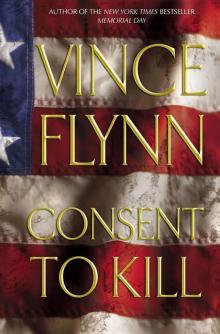 Consent to Kill
Consent to Kill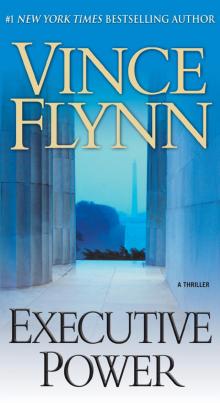 Executive Power
Executive Power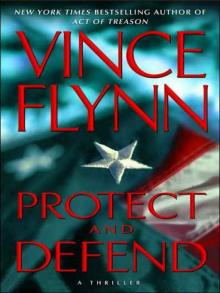 Protect and Defend
Protect and Defend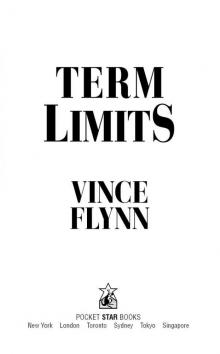 Term Limits
Term Limits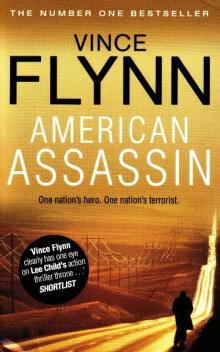 American Assassin
American Assassin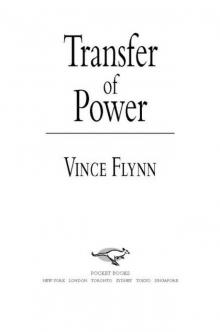 Transfer of Power
Transfer of Power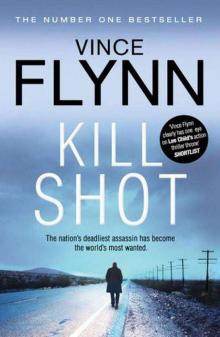 Kill Shot
Kill Shot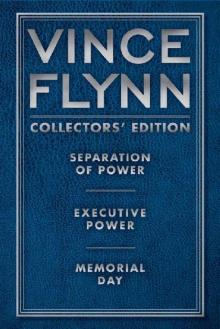 Vince Flynn Collectors' Edition 2
Vince Flynn Collectors' Edition 2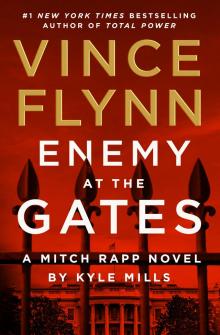 Enemy at the Gates
Enemy at the Gates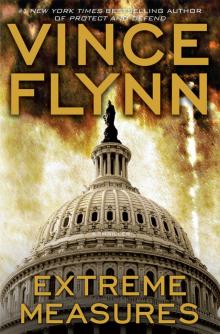 Extreme Measures
Extreme Measures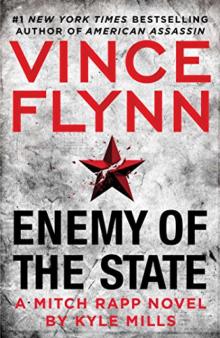 Enemy of the State
Enemy of the State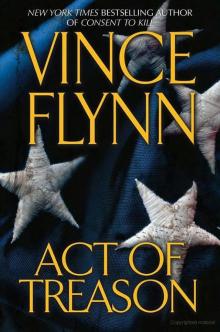 Act of Treason
Act of Treason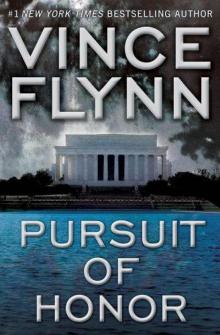 Pursuit of Honor
Pursuit of Honor The Survivor
The Survivor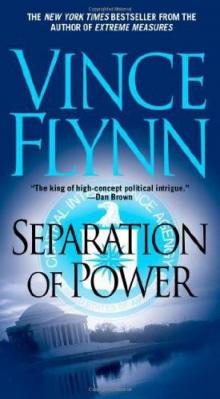 Separation of Power
Separation of Power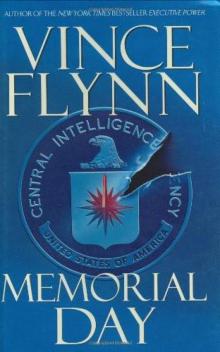 Memorial Day
Memorial Day The Last Man
The Last Man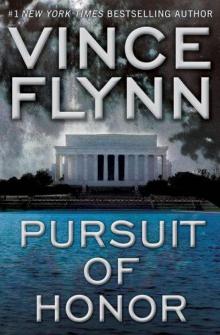 Pursuit of Honor_A Thriller
Pursuit of Honor_A Thriller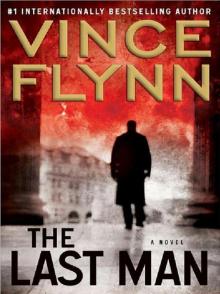 Mitch Rapp 13 - The Last Man
Mitch Rapp 13 - The Last Man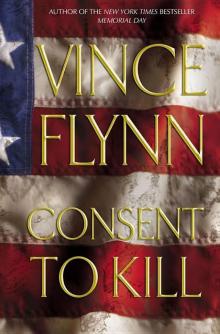 Consent to Kill:
Consent to Kill: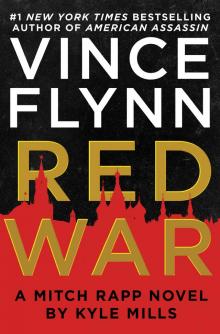 Red War
Red War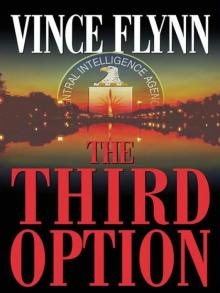 Mitch Rapp 02 - The Third Option
Mitch Rapp 02 - The Third Option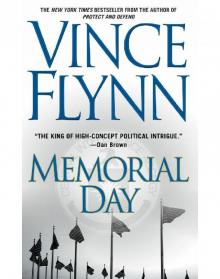 Mitch Rapp 05 - Memorial Day
Mitch Rapp 05 - Memorial Day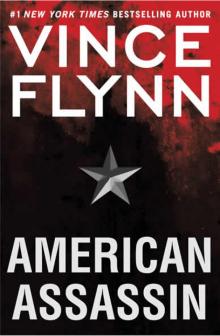 Mitch Rapp 11 - American Assassin
Mitch Rapp 11 - American Assassin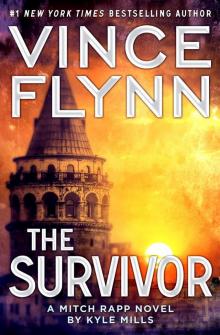 Mitch Rapp 14 - The Survivor
Mitch Rapp 14 - The Survivor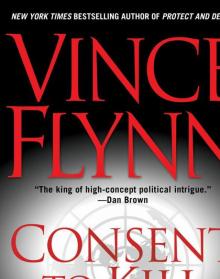 Mitch Rapp 06 - Consent to Kill
Mitch Rapp 06 - Consent to Kill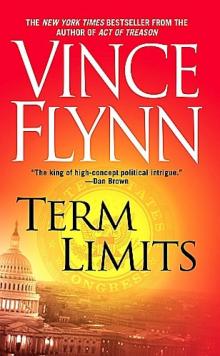 Term Limits mr-1
Term Limits mr-1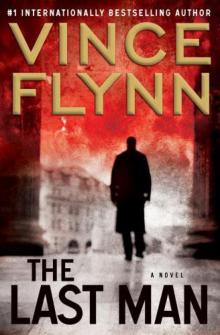 The Last Man mr-13
The Last Man mr-13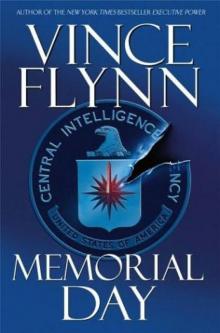 Memorial Day mr-5
Memorial Day mr-5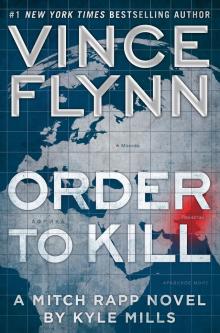 Order to Kill
Order to Kill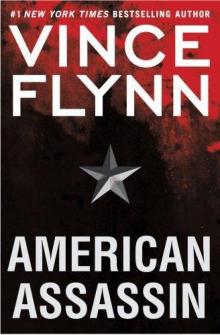 American Assassin: A Thriller
American Assassin: A Thriller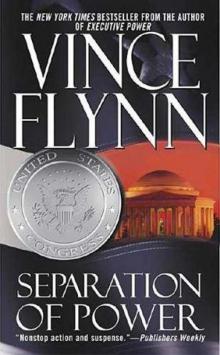 Separation of Power mr-3
Separation of Power mr-3